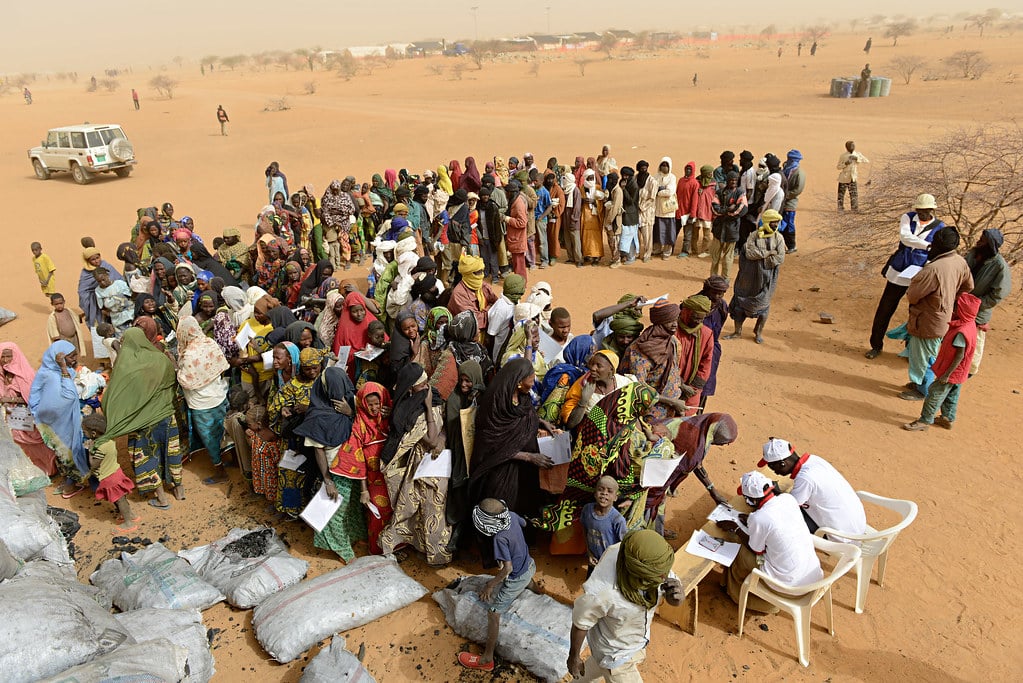Building Communities of Hope
Fiona Kendall serves with Mediterranean Hope, Italy.
Rome, 30th August 2024
Dear friends
The EU-funded COMET[1] project, led by Mediterranean Hope (MH), is now in its third year and, thanks to the project, around 100 people in need of international protection, currently based in Niger, will be arriving in Italy this autumn. Their arrival had been envisaged far sooner but the coup d’état in August 2023 and ensuing instability has required the team to exercise both flexibility and tenacity in ensuring their safe passage.
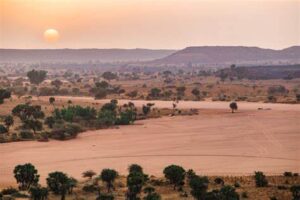
Our humanitarian corridor out of Niger is a first for MH and the security situation on the ground poses various challenges. First and foremost, we do not have a team based in Niger (as we do in Lebanon) and so our partnership with UNHCR, which does have staff on the ground, has been vital. One crucial aspect of the work done by the MH team in Lebanon is to prepare those using the Lebanese corridors for participation in the programme and a new life in Italy. It is no less important for those who have fled to Niger to be prepared for what lies ahead. Without a team there, however, we have had to be more agile.
COMET partners have therefore created a series of digital podcasts and short films to be shared with participants well in advance of their arrival. These cover themes both general and specific and offer diverse perspectives: that of a student, that of a working woman, an overview of the healthcare system, cultural challenges and so on. The material has been translated into the many languages spoken by the participants and we hope that this digital material, which will be published on the COMET website, will be a project legacy from which others can benefit in future.
Not all participants, however, have the means to view or listen to this digital material, and those who do have plenty of questions. For that reason, over the course of August, we have been undertaking interactive online “pre-departure orientation” (PDO) for those who will arrive at the beginning of October. In order to keep groups small and take account of linguistic constraints, a series of sessions has been needed, each facilitated by a cultural mediator who can translate our input from Italian or English into Tamasheq, Arabic, French, Hausa or Somali, as the group requires. UNHCR has managed logistics in Niger, timing sessions to coincide with the arrival in the capital of each group to be registered and fingerprinted at the embassy – another programme requirement. Careful plans were disrupted by heavy rain leading to the collapse of a bridge, making it being impossible for some groups to reach the capital as planned, but we are getting there!
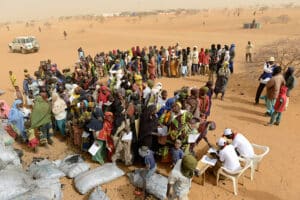
For many reasons, it is a joy to be involved in this online PDO. It is our first opportunity to meet those, whose stories we know on paper, who will come to Italy. Young or old, eager or shy, their personalities, hopes and anxieties fill the screen. We are keenly aware that we have little time to convey all that we want to impart and so have been careful to identify some key messages. It is our chance, too, to gather additional information from the groups, information which is helping to guide us as to where individuals and families should be hosted once here so that their needs are best met. Above all, we want those who attend to understand that the road ahead is not straightforward – but that they will be supported in meeting the challenges they face. How much we are looking forward to welcoming all of them at Fiumicino airport in Rome in just over five weeks’ time!
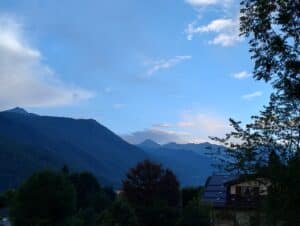
MH could not carry out its work without funding and, from the outset, one of its most significant donors has been the Tavola Valdese, which dedicates millions of euros donated to it each year by Italian taxpayers to social projects which it judges to have merit. The Tavola is the board of the Waldensian Church (now united with the Italian Methodist Church) which this year celebrates its 850th anniversary. The Waldensian story is one of extraordinary faith and tenacity, not to mention survival, in the face of persecution and exile. The foothills of the Cottian Alps in Piedmont are enmeshed in that history, so much so that they have become known as the “Waldensian Valleys” and it is there each year that the Waldensian synod, from which I have just returned, takes place. In the darkest times, Waldensians relied on support from other Reformed churches to survive and that is reflected in the strong bonds shared with other denominations which remain today. As a result, representatives from across the Reformed world – from as far afield as Uruguay, Scotland and the U. S. – descend on the small town of Torre Pellice each August – this year more than most. Attending this year, I was reminded once more of the importance of our fraternal connections and of how we can provoke, encourage and sustain one another. We find that, as faith communities, we are grappling with the same challenges, not least of all the question of relevance in a largely secular world. Faith and tenacity are characteristics we all need to survive.
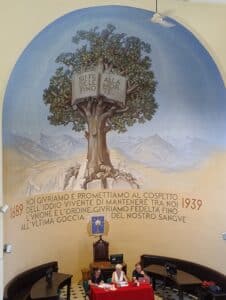
How to build communities of hope was, in fact, the theme under consideration earlier in the month in Erfurt, where members and associates from the global Iona Community spent a week at the beautiful Augustinerkloster, home for a time to reformer Martin Luther. For me, it was a delight to participate, in part by facilitating workshops exploring issues associated with migration. Through the workshops, I was able to share something of MH’s wonderful work and the creative approaches it adopts as well as to hear the rich discussion reflecting participants’ own concerns and experiences. Engaging with difficult issues is something for which I believe people of faith have a particular responsibility – but it is not easy to do. Creating and taking the opportunity matters. To do it in such a setting with this remarkable group of people was an inspiration and, again, a reminder of how we can nourish each other.
As I sign off for now, as you feel able, please hold those without hope in your prayers and seek ways to work for justice for those who are oppressed. To paraphrase the Waldensian motto – lux lucet tenebris – be the light that shines in the darkness.
Every blessing to you.
Fiona Kendall serves with Mediterranean Hope, Italy. Her appointment is made possible by your gifts to Disciples Mission Fund, Our Church’s Wider Mission, and your special gifts.
Make a gift that supports the work of Fiona Kendall

